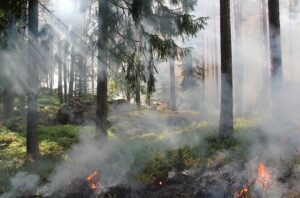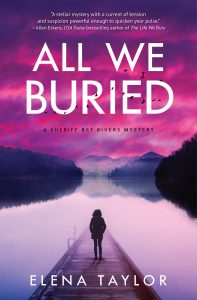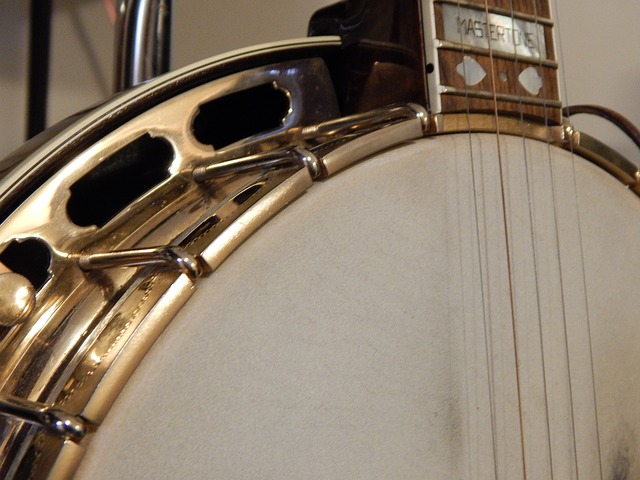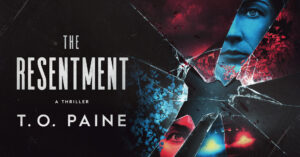Writing a first draft is like tuning a banjo. It’s a lot harder than it looks.
Writing a first draft is like tuning a banjo. It’s a lot harder than it looks.

As some of you may have read in another article, I’ve picked up the banjo. Literally—picked it up. There’s no playing happening yet, just some banjo holding, tuning, and restringing.
Let me explain.
First, tuning was a challenge. I struggled to get it right. I’m not sure why I found it so difficult. I’ve tuned a variety of instruments over the years, but for whatever reason, I struggled with this most basic of benchmarks in learning how to play this instrument.
Finally! Success! Tuned – then a string broke.
Sigh.
Get online. Order a couple new sets. Wait, wait, wait.
Strings arrive! Yay!
Try to remember how to string a banjo. Thank god for the internet and how-to videos. Not so bad. Easier time than I’d had tuning the damn thing.
Crack.
Tuning peg breaks.
Sigh.
Get online. Multiple replacement pegs available, what to do, what to do, what to do.
Wait until tomorrow and talk to a living, breathing person on the phone and ask for advice.
Wait for it!
For a lot of us, everything feels challenging right now. Simple things take much longer than they used to. We can’t casually drive to a store. Or call on a friend. Or go on a date. (Hubby and I ordered a pizza for our 8th wedding anniversary. It was as close to a “date” as we had energy for this year.)
We can’t easily hop on a plane or stay in a hotel or eat in a restaurant.
First world problems, but that doesn’t mean they don’t have an impact on our psyches.
Writing a first draft is hard when life is chaotic.
 In many ways, the smoke has been psychologically harder on me than the pandemic. For those of us living on the west coast, the air has been at best unhealthy and at worse downright hazardous for what feels like forever. The smoke is full of toxins. Our lungs struggle and gasp for breath.
In many ways, the smoke has been psychologically harder on me than the pandemic. For those of us living on the west coast, the air has been at best unhealthy and at worse downright hazardous for what feels like forever. The smoke is full of toxins. Our lungs struggle and gasp for breath.
I have a theory that the reptilian parts of our brains are in a constant state of run, run, run. Fire is dangerous and it’s over the next rise. Get. Out. Now.
But there’s nowhere to go and no easy way to get there.
I’m lucky, my house and the stables where I keep my horses are a long way from the fires raging in eastern Washington and down south in Oregon and California, but the reptilian part of the brain doesn’t care. It just assesses: fight, flight, freeze. And fire demands flight, the body on constant alert.
But how is all this like writing a first draft? I’m glad you asked . . .
Writing a first draft can start slow.
The writing process can be slow to get started. The simple fundamentals of Point of View (the character who tells the story) Genre (Mystery, Romance, Historical, Literary), Conflict for the protagonist (what does the main character face?), can take a very long time to identify. Rewrite after rewrite, first person, no third person, no first person, no . . . third person multiple. It’s a mystery, no it’s romance, no it’s historical . . . no it’s . . . sci-fi?
It’s about a woman facing great odds, no it’s about a woman facing her greatest fear, no it’s about two women facing each other, no . . . it’s a story about a boy and his dog.
Components that feel effortless when reading the published novel are issues writers struggle with through draft after draft after draft.
Then, once we have that figured out (the banjo is tuned) a string breaks. The POV we thought was right, isn’t. The genre is off. The conflict is misplaced. We start over with a new string.
Then the tuning peg breaks and we’re back to square one.
Writing a first draft can feel endless
Throughout it all, I know that once I get a first draft finished, it’s just like having that banjo tuned. Now I have to learn how to pick. How to move my fingers on the frets. How to make something coherent out of the D-B-G-D-G, something . . . polished.
Writing a first draft can feel overwhelming.
Writing a first draft can also feel like . . . victory
I’m finishing up a first draft on a new project. It’s different than my previous novels, and that’s a little bit scary. But it’s exciting too.
Now I just have to tune it up.
Want to find out what else I’m doing to get through the pandemic? Besides getting this banjo tuned, restrung, and repaired, I’m teaching writing workshops every Wednesday morning. Click the link here for more information.
 Elena Taylor is the author of All We Buried, available now in print, e-book, and audio book format at all your favorite on-line retailers. And don’t forget many independent bookstores can order books for you and have them shipped to your home or for curbside pickup.
Elena Taylor is the author of All We Buried, available now in print, e-book, and audio book format at all your favorite on-line retailers. And don’t forget many independent bookstores can order books for you and have them shipped to your home or for curbside pickup.
For more information on All We Buried, click on the link here to visit the home page.
Images:
Kermit and Banjo/header by Erika Wittlieb on Pixabay.
Fire by Ylvers on Pixabay.



